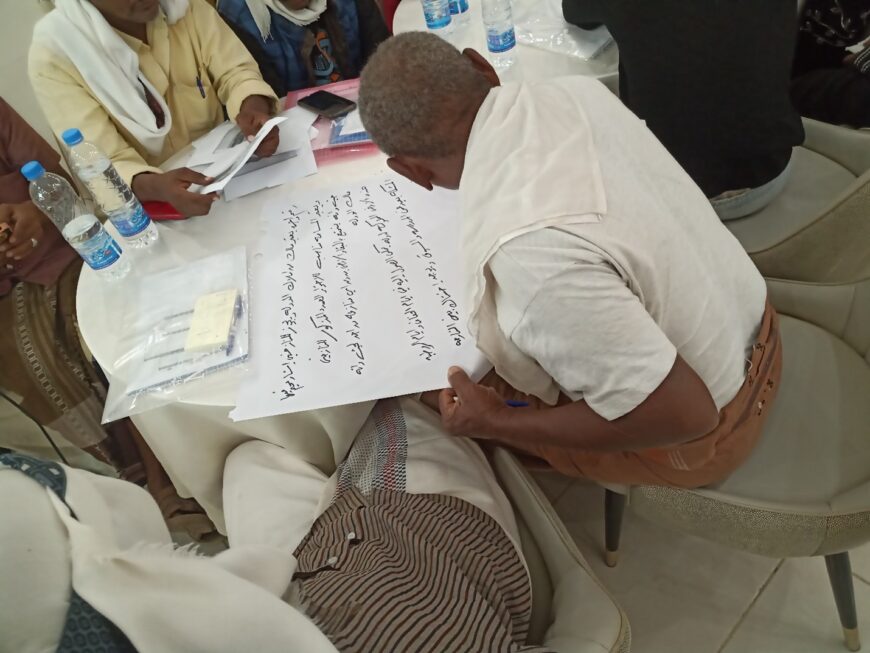Originally from Taiz governorate in Yemen, Khadija lost her home in 2015 due to the conflict that left 4.7 million people displaced. She relocated to Ash-Shorouq site, a camp for Internally Displaced People (IDPs) in Aden. Adjusting to this new life was difficult and she encountered several challenges integrating with the host community as she had no prior connection to the area.
Community Committees (CC) enable residents of IDP sites to support their communities. They are important community structures that support with humanitarian interventions. When elections were held for CCs in October 2024, Khadija was chosen to serve as a representative.
I have been serving as a CC member for the past four months. My main role is to coordinate between humanitarian partners and site residents. When organisations visit the site for assessments or aid distribution, I guide them to households in need. I also report incidents like theft or fires to Acted for intervention.

With the support of the European Union Humanitarian Aid, Acted has trained 90 newly elected CC members (56 Male, 34 Female) across IDPs sites in Aden. Khadija was among the 3 CCs members in Ash-Shorouq site to be trained on topics such as displacement and site management, roles of CCs, humanitarian standards and principles, protection, communication, service coordination, governance, and incident reporting.
For Khadija, this training was greatly useful to fulfill her new position.
It significantly improved my interpersonal communication skills, particularly in coordinating with partners and reporting incidents to Acted. I gained clearer understanding of my role and my responsibilities, and how to perform them professionally.
One of the most impactful lessons she received was about Housing, Land, and Property (HLP) rights.

Before the training, I had no knowledge of HLP issues, but I learned that we are not required to leave a property immediately upon the owner's request. We used to leave on the same day due to fear and lack of awareness. I also learned about rental contracts. In the past, we rented homes without formal agreements, which left us vulnerable to eviction, even if we had paid the rent. Now I know that residents are protected, and landlords must provide 2-3 months’ notice before asking us to leave.
Given the increasing eviction threats that displaced populations are experiencing, these skills are necessary to help displaced communities address HLP disputes should they arise. These skills enable CC members to identify and refer HLP risks and issues to Acted for follow-up.
Khadija explained how the training empowered her and gave her confidence to handle specific issues.
The training provided valuable knowledge about human rights. Before, I was unsure of how to address incidents of harassment or theft. Now I know how to take appropriate actions and properly report such incidents.

She now feels better equipped with practical skills to support and fulfill her role in the camp’s management and governance.
Acted’s conducted tests after the trainings, which highlighted the success of the project in strengthening skills and knowledge of CC members just like Khadija. Ultimately these training are empowering CC members, enhancing local leadership and promoting self-reliance so that members are equipped with the knowledge of how best to support their communities.
As a member of the Yemen Displacement Response (YDR) Consortium, supported by EU Humanitarian Aid, Acted intervened to support 360 newly elected community committee members living in 84 IDPs sites in Aden, Al Dhale’e and Marib governorate through the provision of capacity building training.